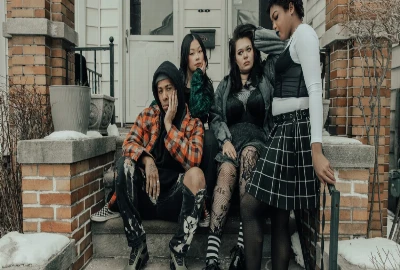Movies That Deserved Way More Love Than They Got This Year

Every year, the film industry delivers a mix of box-office juggernauts, indie darlings, and everything in between. While the major studios pour millions into blockbuster marketing campaigns, some films—despite outstanding performances, fresh storytelling, or critical acclaim—fly under the radar. This phenomenon is nothing new, but in today’s crowded streaming age, it feels more pronounced than ever.
The reasons are plenty: tight competition with franchise films, poor marketing, limited release schedules, or even audience fatigue with certain genres. Still, for true movie lovers, these underappreciated gems are often the titles that linger long after the credits roll. They’re the kind of films you stumble upon late at night and wonder, “How did I not hear about this sooner?”
This year has been no exception. While superheroes and sequels took up much of the spotlight, a handful of films quietly carved out their own identity—movies that deserved more love than they got. Below, we’ll look at some of the most overlooked releases of the year, unpack why they didn’t quite connect with mainstream audiences, and explain why they deserve a second chance now.
“Past Lives” – A Quiet Story That Spoke Volumes
Celine Song’s debut film Past Lives is one of the most intimate and emotionally resonant dramas to hit the big screen this year, yet many casual viewers likely missed it. Unlike traditional romances or heavy-handed melodramas, Past Lives takes a delicate, meditative approach to love, fate, and the “what ifs” of our lives. The film follows two childhood friends, Nora and Hae Sung, who reconnect decades later in New York, exploring the tension between their cultural roots, personal choices, and the quiet ache of unfulfilled possibilities.
Critics raved about the film’s subtle beauty, with many calling it one of the best directorial debuts in years. It even scored high on early awards predictions. But despite glowing reviews, Past Lives received only a limited theatrical rollout. That restricted distribution, coupled with a lack of blockbuster-style marketing, meant it couldn’t compete with louder summer releases. In the end, it became a film championed by cinephiles, but still relatively unknown to the average moviegoer.
What makes Past Lives special is its emotional honesty. Instead of forcing dramatic climaxes, it leans into silence, long pauses, and unspoken emotions. It’s about the small moments that shape our lives more than the grand gestures. For anyone who has wondered what life might have looked like if they had chosen differently—or for anyone who believes love isn’t always about possession—this is a must-watch. In short, Past Lives is the kind of film that stays with you, quietly, long after it ends.

“The Iron Claw” – Wrestling with Family, Fame, and Tragedy
A24’s The Iron Claw brought the real-life story of the Von Erich wrestling family to the big screen, blending sports drama with heart-wrenching tragedy. With Zac Efron delivering what many consider his career-best performance, the film shed light on the pressures of generational legacy, toxic masculinity, and the often-overlooked darker side of professional wrestling.
Despite its strong cast—including Efron, Jeremy Allen White, and Lily James—the film struggled to break into mainstream success. One reason is its genre: sports dramas rarely draw in massive box-office numbers unless attached to a household franchise like Rocky. Another is its heavy subject matter. While superhero movies dominated theaters, The Iron Claw dealt with grief, loss, and the suffocating expectations of family. Many casual viewers may have shied away, unsure if they were up for such an emotional ride.
Yet, this is precisely why the film deserved more love. The Iron Claw goes beyond the ring, portraying a deeply human story about resilience and vulnerability. It doesn’t glamorize wrestling; instead, it explores what happens when ambition and family loyalty collide with personal well-being. For audiences who gave it a chance, it was a revelation—powerful, gut-wrenching, and unforgettable. It may not have been a “feel-good” sports story, but it was certainly one of the most important films of the year.

“Showing Up” – Michelle Williams in a Different Light
Kelly Reichardt has long been a director associated with patient, thoughtful storytelling, and Showing Up is no exception. Starring Michelle Williams as a struggling artist balancing creative ambition with everyday chaos, the film captures the often-overlooked reality of the artistic process. Unlike flashy Hollywood portrayals of tortured geniuses, Showing Up roots itself in the mundane—missed appointments, messy apartments, and the awkward navigation of personal and professional relationships.
This realism may have been its downfall at the box office. In an era where audiences are drawn to spectacle, Showing Up is deliberately understated. It’s not trying to be glamorous, nor does it offer quick resolutions. Instead, it thrives in the small details: a broken kiln, a half-finished sculpture, the quiet jealousy between peers.
While critics praised its authenticity and Michelle Williams’ grounded performance, the film failed to capture mainstream attention. But for those who value authenticity in cinema, Showing Up is a masterclass in subtlety. It’s a reminder that not every story needs to be epic; sometimes, the beauty lies in the ordinary.

“Theater Camp” – Comedy with a Heartbeat
Mockumentary-style comedies often struggle to find a wide audience, and Theater Camp was no exception. Directed by Molly Gordon and Nick Lieberman, the film follows a group of eccentric kids and counselors at a summer theater camp, blending laugh-out-loud absurdity with genuine heart.
Part of why Theater Camp flew under the radar was timing. Released in a summer stacked with blockbusters like Oppenheimer and Barbie, the film couldn’t compete for attention. Marketing budgets for smaller comedies are also notoriously slim, leaving most of its exposure to word-of-mouth and limited indie screenings.
Still, Theater Camp shines as one of the year’s funniest and most heartfelt comedies. It celebrates the misfits, the dreamers, and the theater kids who find belonging in creativity. For audiences tired of cookie-cutter comedies, this one offered something fresh—improvised humor, sharp writing, and a cast clearly having the time of their lives. If you skipped it in theaters, it’s one to queue up at home for guaranteed laughs and a surprising emotional punch.

Why Great Movies Often Get Overlooked
So why do films like these—critically acclaimed and full of heart—fail to get the recognition they deserve? The answer lies in a combination of factors. First, marketing plays a massive role in visibility. Studios can spend upwards of $100 million promoting blockbusters, while smaller films rely on festival buzz or limited word-of-mouth. Without big campaigns, even masterpieces can vanish unnoticed.
Second, competition is fierce. When an indie film releases against a Marvel installment or a buzzy franchise sequel, it’s an uphill battle. Theaters prioritize what fills seats, and smaller films often get pushed to fewer screenings or disappear quickly.
Lastly, audiences themselves are creatures of habit. Many prefer familiar genres and big names, overlooking films that don’t immediately grab attention. But as streaming platforms become more diverse, there’s hope that these films will find second lives outside theaters.

How Audiences Can Support Underrated Films
The good news? Audiences have more power than ever to change this dynamic. Supporting overlooked films doesn’t require massive effort—it’s often as simple as buying a ticket, renting on-demand, or sharing recommendations online. Word-of-mouth is still one of the strongest tools in film culture, and a single viral post can breathe new life into a struggling release.
Streaming platforms also offer opportunities to catch up on films you missed. Many smaller movies thrive after theatrical runs, finding larger audiences on Netflix, Hulu, or Amazon Prime. By choosing these films over yet another rewatch of a blockbuster, you send a message that there’s a market for originality and diversity in storytelling.
Finally, engaging with local film festivals, indie theaters, and smaller distributors helps keep these stories alive. Great movies don’t always come wrapped in flashy trailers or massive ad campaigns. Sometimes, they’re the quiet ones waiting for you to notice.





